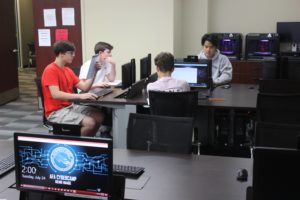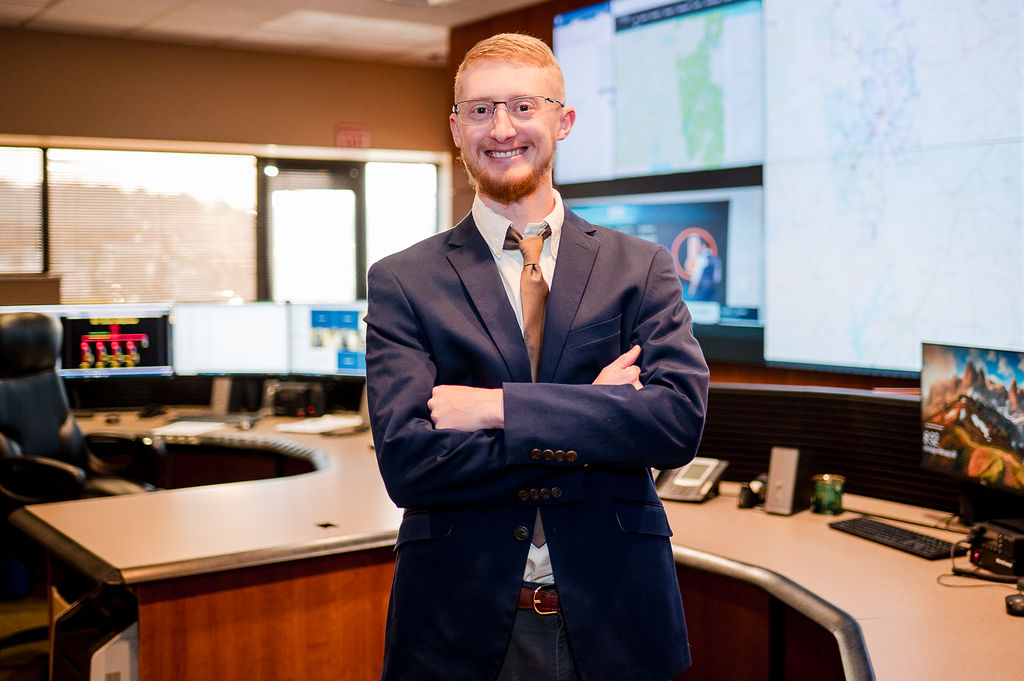
With almost daily reports and news headlines detailing alleged personal, corporate and government breaches, the criminal or unauthorized use of electronic data is an international concern.
High school students from around the region came to the University of West Georgia recently to learn about cybersecurity, its principles and how it is applicable to everyday life.
Developed by the Air Force Association’s (AFA) CyberPatriot program and sponsored by the College of Education’s Fusion Center and Department of Educational Technology and Foundations, CyberCamp 2018 was targeted toward beginners in cybersecurity.
COE Professor Dr. Jonathan Gratch first learned about the CyberPatriot program when he attended the pilot summer camp in North Texas five years ago. After arriving at UWG in 2016, he realized there was no camp of its kind in West Georgia or greater Atlanta.
“I felt hosting a CyberCamp would be a great opportunity for our area,” said Gratch, who launched UWG’s first camp in 2017. “Our society’s economic vitality and national security depend on a safe cyberspace and individual cybersecurity skills.”
For more than three hours each day, students attended sessions and participated in hands-on activities that allowed them to learn the importance of cyber safety and how to protect their personal devices and information from outside threats. Topics ranged from security in online environments, to setting up and managing accounts and permissions in Windows and Linux, to the setup and management of virtual machines.
Attendees were also treated to a campus tour and an information technology security tour.
Another goal of the UWG/AFA CyberCamp was to foster and maintain students’ interests in STEM (science, technology, engineering and mathematics) activities.
Careers in the cyber safety field could pay off in the future. Cybersecurity Ventures, the world’s leading researcher and publisher covering the global cyber economy, estimates there will be 3.5 million cybersecurity job openings by 2021.
The 20-hour curriculum culminated with the fifth day serving as a mini-CyberPatriot competition simulating real situations faced by industry professionals. The four teams tested their knowledge against each other on how to secure systems such as Windows 10 and Ubuntu 16.
The Fusion Center’s Stephanie Puckett described the competition as “very close.”
“Originally there was a tie for first place,” she revealed. “CyberPatriot headquarters had to be contacted in order for them to go into the servers and see at what time the tasks were completed. There was only a one-point difference between those teams and the team in third place.”
Activities like CyberCamp are at the core of the Fusion Center’s mission.
“The Fusion Center’s mission is to provide opportunities for students to explore various STEM topics in a safe, educational environment through hands-on activities,” Director Lindsey Robinson concluded. “Overall, we feel it is important to invest time in tomorrow’s future today.”





